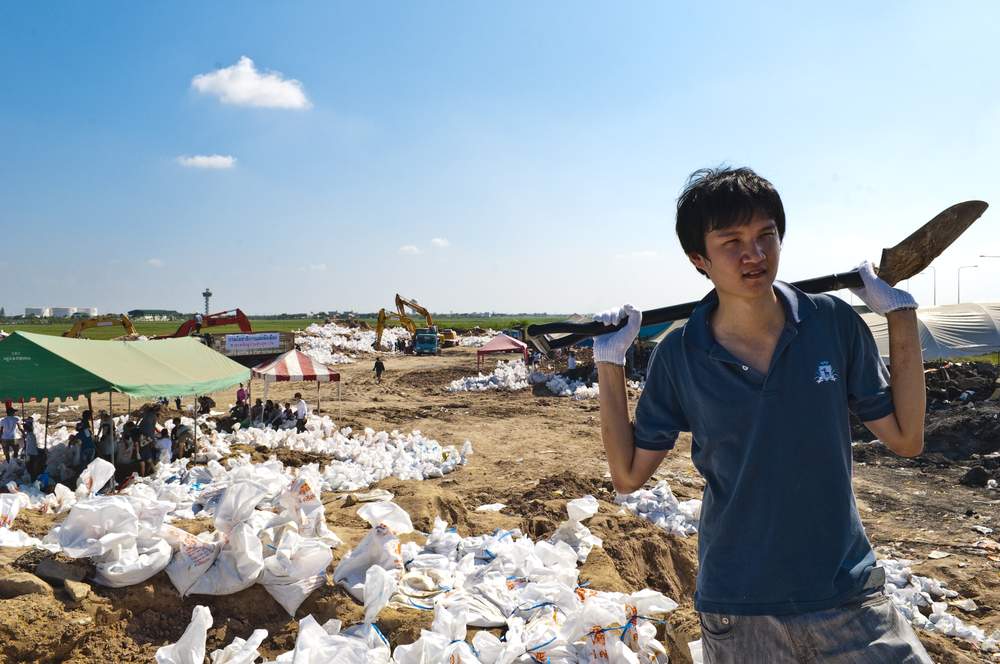In the world of voluntourism there is a need for organizations to be more selective in terms of who they choose as volunteers, and at the same time there is a need for volunteers to be realistic about their skills and abilities, before they apply for voluntourism opportunities.
Years ago, when I was in management with a national bookstore chain, I learned the importance of hiring the right people, and not hiring people simply to ‘fill a gap’. Why? Hiring people to fill a gap, instead of making sure they have the right skills, costs the company more money in terms of training hours, wages, and time spent.
When organizations take the time to find the right people for the gaps that need to be filled, everyone benefits. Unfortunately many organizations are simply ‘filling the gaps’ in an effort to keep things running – even if things are not running smoothly.
“Wouldn’t it be revolutionary for voluntourism companies to turn away volunteers when they don’t have the right skills or time for a project? The companies could set a precedent of the needs of a community coming before the desires of a volunteer. In many cases, the money spent by an overseas volunteer would have likely had broader impact as a locally-run tour — a tour that teaches would-be volunteers about community issues, one that uses locally run guesthouses to infuse money into the local economy, and one that creates deep learning opportunities and facilitates cultural exchanges.
And when the circumstances are right, when that volunteer possesses the winning combination of skills and a proper time-frame, they should have easy access to a range of projects that have built nuanced solutions hand-in-hand with the local communities and local organizations. These projects can span all the niches: construction, teaching, conservation. It’s easy to point to construction projects and assert that in most cases locals are more skilled, but that overlooks the fact that foreign volunteers usually pay for those very materials. Unskilled English teachers may not be terribly effective, but in many schools the classes go untaught without foreigners donating their time.” Fixing Voluntourism: Building the Ark, by Shannon O’Donnell
Motivation and self-evaluation

It’s not just about skill and experience, it’s also about asking yourself what you’re willing to do: Are you okay with waking up early every morning? Will you clean out laterines with a small rusty shovel? Can you handle the heat? How about bugs, insects, and things that go bump in the night? Can you survive without a wifi connection, and possibly without power for days at a time.
“Voluntourism is a bit similar to an internship. You get to learn something about a new place, about a new people. In return you are expected to contribute your own share. Ideally everyone involved comes out better off.
In practice it can be hard to make it really work. Between administrative overhead, recruitment efforts and selection as well asrequired training, a lot of organisations prefer long term volunteer commitments to make it work. When I volunteered at Goodwill, an organisation that teaches English and job skills to disadvantaged women in Bangkok, that was their primary concern: Would I stay long enough to make it worth their time?” Karsten Aichholz, a digital nomad in Bangkok
Finding the right fit

When researching voluntourism projects it is important to take your time, read the organizations website to make sure their values fit your own, read reviews by other volunteers. Look into grassroots projects, as these generally have a greater impact on the communities they serve due to smaller overhead.
Your values and the values of the projects you’re interested in working with need to match.
Why you should pay to volunteer

The money paid often goes towards paying for your room and board; it also helps to ensure that the program continues to run smoothly when volunteers decide to leave early because they underestimated the program, or the role they would have during the program.
My week at the park involved helping to bathe and feed the elephants (on the first day), preparing their food, cleaning out the mud pit, and various tasks around the park. In the evenings the volunteers hung out, and in the early morning I would crawl out of bed before dawn so I could watch the elephants roam around as the sun rose.
I chose well, I talked to friends and received honest reviews, I knew I could handle the tasks they gave me, and I didn’t need to have special skills. The project had a positive impact. As far as I’m concerned, it was money well spent, and I’m looking forward to visiting the park again in a couple weeks to speak with Lek Chailert, an amazing animal activist.
If you plan to volunteer while traveling, skip the tours of the local slums; unless those tours are run by locals from those neighbourhoods, who are trying to educate and promote local business within the community. Depending on the project, dropping in for a day or a week is not long enough, in many cases organizations was volunteers who can stay for at least a month as this is less disruptive to the program.
Being a volunteer can be an amazing experience, but remember, you’re there to help others and to make a positive impact; know your skills, abilities, and limitations before applying; do your research before applying; accept that many programs charge a fee, and most importantly allow yourself time to enjoy the experience.